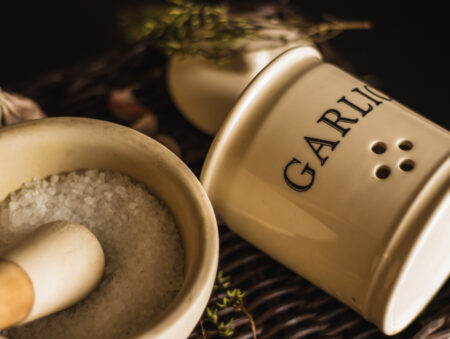4 Natural and Eco-Friendly Insecticides That You Can Use at Home
4 Natural, eco-friendly insecticides that you can use at home

Chemical pesticides need to become a thing of the past. Not only can they cause numerous health problems, they are also extremely detrimental to the planet, polluting our precious environment. Although these chemicals are only applied to a certain area, they travel much further through the air, water and soil. When farmers rely on chemical pesticides, there is a drastic change in the health of the soil. When the health of the soil depletes, so does the nutritional content in our food.
Here at the Combe Grove, the Team follow Soil Association standards and insecticides are not used in the market garden. Insecticides, even those that are homemade, do not discriminate between insects. As a result, they deter the beneficial insects such as bees and ladybirds. Read more about this in our journal post on the long-term methods of pest control that Lewin and the Estate Team implement at Combe Grove as part of our permaculture practice.
As it can take time to implement these methods at home, the Team share a few natural, homemade and eco-friendly methods for keeping your fruit and vegetables safe, without adversely impacting the ecosystem. These methods are also perfect for indoor houseplants where the wider ecosystem is not affected.
Garlic water spray
As a result of its pungent smell, garlic water can make an excellent eco-friendly and non-toxic insecticide. Insects such as Aphids, Ants, Beetles, Caterpillars, Termites and Whiteflies have been known to be repelled by the strong smell of garlic. To make the spray, chop an entire head of garlic and mix with two cups of boiling water. Allow to sit for at least 24 hours and then strain into a spray bottle. Another way to use garlic to control pests is to intercrop it.
Tomato leaf spray
Have you ever noticed that your tomato plants don’t get nibbled at, in the way that your other plants do? Well, there is actually a very good reason for this. The leaves of a tomato plant hold toxic compounds called alkaloids. After the leaves have been cut, they release these alkaloids strongly, keeping away aphids and other insects whilst still being completely safe for humans.
To make this spray, add two cups of tomato leaves to two cups of boiling water. Afterwards, let it sit for 24 hours. Finely strain the tomato leaves and add two more cups of water to the mix and add to a spray bottle.
Eucalyptus Oil
Many insects will avoid strong and unknown smells as they represent danger. Eucalyptus oil not only has a sharp, pungent smell, but it is also one that will most likely be perceived as unfamiliar by our plant-eating insects. Easily made at home by adding half a teaspoon of eucalyptus oil to two cups of water in a spray bottle. Shake before every use as the oil can separate from the water. As the Centre for Disease Control and Prevention have approved eucalyptus oil as an insect repellent, this natural repellent can also be used to deter mosquitos in the warmer months. Direct contact with undiluted oil can irritate the skin so be sure to use gloves when initially mixing.
Salt Spray
This is the perfect way to deter insects away from plants whilst using readily available kitchen staples. Salt can deter pests such as slugs and snails as it dehydrates them, whereas other insects will simply be repelled by it. Mix salt with boiling water and transfer to a spray bottle. Apply directly onto your plants. Salt can also be sprinkled sparingly at the base of plants as a deterrent, benefitting the plant by increased absorption of magnesium and sulphur.
Natural Tip
Certain plants may be sensitive to the natural oils and other ingredients in some of these sprays. Therefore, we recommend testing all sprays before applying to your plants. You can do this by spraying on a small section and leaving overnight.
We hope that you enjoyed this post on 4 natural and eco-friendly insecticides that you can use at home. Feel free to take a look at the Combe Grove Farm Shop, stocked with nutritious vegetables grown right here and head over to our Instagram for more photos.
